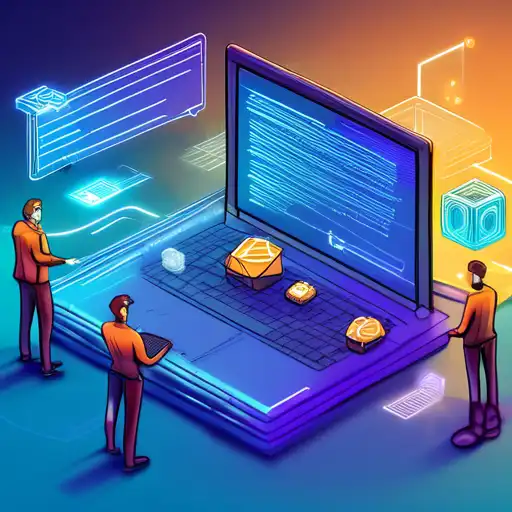Introduction to Smart Contracts
Smart contracts represent a pivotal innovation in blockchain technology, automating agreements without the need for intermediaries. These digital contracts execute transactions automatically when predetermined conditions are met, offering a secure and efficient alternative to traditional contract law.
How Smart Contracts Work
At their core, smart contracts are self-executing contracts with the terms of the agreement directly written into lines of code. They run on blockchain networks, ensuring that transactions are traceable, transparent, and irreversible. This technology not only reduces the risk of fraud but also significantly lowers transaction costs.
The Benefits of Smart Contracts
- Trust and Transparency: All parties have access to the terms and outcomes, eliminating disputes.
- Security: Encrypted records on the blockchain are nearly impossible to hack.
- Efficiency: Automating processes saves time and reduces paperwork.
- Cost Reduction: By removing intermediaries, smart contracts cut down on fees and delays.
Applications of Smart Contracts
Smart contracts find applications across various sectors, including finance, real estate, healthcare, and more. From automating insurance claims to streamlining supply chain management, the potential uses are vast and varied.
Challenges and Considerations
Despite their advantages, smart contracts face challenges such as legal recognition, scalability issues, and the need for technical expertise to deploy. It's crucial for businesses to weigh these factors when considering adoption.
Future of Smart Contracts
As blockchain technology evolves, smart contracts are expected to become more sophisticated, with wider adoption across industries. Innovations in blockchain technology and cryptocurrency will further enhance their functionality and accessibility.
Conclusion
Smart contracts are transforming the way we think about agreements and transactions in the digital age. By leveraging blockchain technology, they offer a secure, efficient, and transparent method to execute contracts, paving the way for a more decentralized and automated future.
